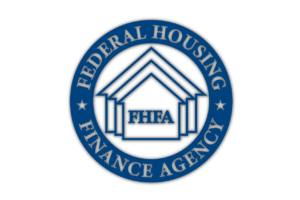On Tuesday, House Democrats unveiled the Health and Economic Recovery Omnibus Emergency Solutions Act (HEROES Act) and summary. While the House is expected to vote on the $3 trillion bill on Friday, it is unlikely to become law, at least not in its current form. The bill is largely a messaging document that lays the groundwork for negotiations with the Senate and Republicans. Republicans dismissed the bill even before the text was public, calling it a Democratic wishlist that would go nowhere in the GOP-controlled Senate. It is unlikely Congress will pass another relief package before June and Senate Majority Leader Mitch McConnell (R-KY) has indicated that he will push for liability protections for businesses that reopen during the pandemic in exchange for aid for state and local governments. He and several other Republicans want to wait to see the impact of the current relief measure before passing any other relief and are indicating that future spending may need to be offset by budget cuts.
The bill notably does not include the ACTION Campaign priorities to fix the four percent credit rate or lower the 50 percent test. Congressional staff indicated that the HEROES legislation is still viewed as a response bill and our asks are lively to be included in a later recovery bill.
We’re still working our way through the more than 1,800 pages, but below are a few highlights related to housing, assistance to the populations we serve and your businesses.
Housing
- $100 billion in rental assistance through the Emergency Solutions Grants (click here for more);
- $75 billion for direct assistance to homeowners struggling with mortgage payments, property taxes, property insurance, utilities and other housing related costs;
- $11.5 billion in homeless assistance grants;
- $5 billion in Community Development Block Grants;
- $4 billion for emergency home internet connectivity needs;
- $4 billion for Tenant-Based Rental Assistance;
- $2 billion for the Public Housing Operating Fund;
- $1.7 billion for Section 202 Housing for the Elderly;
- $1.5 billion for the Low-Income Home Energy Assistance Program;
- $1 billion for emergency vouchers for people experiencing or at risk of homelessness and survivors of domestic violence;
- $1 billion for Community Development Financial Institutions (CDFI);
- $750 million for Project-Based Rental Assistance;
- $750 million for rural rental assistance;
- $200 million for Section 811 Housing for Persons with Disabilities;
- $100 million for Violence Against Women Act programs;
- $100 million for Housing Counseling Assistance;
- $100 million to address overcrowding in housing in native American housing;
- $15 million for Housing for Persons with AIDS;
- An extension and expansion of the eviction moratorium for 12 months after enactment; and
- An expansion of CARES Act federally-backed mortgage forbearance to include all multifamily mortgages, regardless of federal backing.
Household Resources
- Another round of Economic Impact Payments to all Americans with the same $2,400/$1,200 for married couples and individuals, with increases to the dependent amount from $500 to $1,200 per dependent (up to three) and retroactively increases the dependent age from 17 to 24 for full-time students;
- $10 billion to Supplemental Nutrition Assistance Program (SNAP);
- $1.1 billion for Special Supplemental Nutrition Program for Women Infants and Children (WIC);
- Expands eligibility and funding for the Earned Income Tax Credit;
- Increased the Child Tax Credit to $3,000 perc child and makes it fully refundable for 2020;
- Requirement that states and utility companies receiving federal aid maintain water and electricity services through the duration of the pandemic; and
- Extends the July 31, 2020 cut-off for the additional $600 federal pandemic unemployment compensation through January 31, 2021.
Business Resources
- Increases the percentage of qualified wages reimbursed through the employee retention credit from 50 to 80 percent and increases the wages per employee from $10,000 per year to $15,000 per quarter, with a maximum of $45,000 per calendar year;
- A requirement that all forbearance and repayment options maintain the same payment schedule by extending the maturity by the same period of time payments were suspended;
- A Federal Reserve System lending facility for Residential Rental Property Owners to make long-term, low-cost loans to temporarily compensate for documented financial losses caused by reductions in rent payments and a deferral of loan payments for six-months after enactment;
- 50 percent refundable payroll tax credit equal to the applicable percentage of the qualified pandemic-related employee benefit expenses;
- Payroll tax deferral for businesses for recipients of Paycheck Protection Program loans;
- Paycheck Protection Program (PPP)
- Extension of the Paycheck Protection Program covered period from June 30, 2020 to December 31, 2020;
- Extends eligibility to all nonprofits of all sizes and clarifies the eligibility of housing
- cooperatives;
- The lesser of 25 percent or $10 billion set-aside for CDFIs, Minority Development Institutions, SBA microlenders and SBA Certified Development Companies; and
- Clarifies that business can use both the PPP and the Employee Retention Tax Credit.

